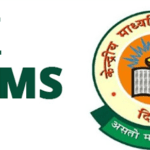UPSC stands for the Union Public Service Commission. It is one of the premier recruiting agencies in India responsible for conducting civil service examinations and selecting candidates for various positions in the Indian Administrative Service (IAS), Indian Foreign Service (IFS), Indian Police Service (IPS), and other central services.
The UPSC conducts the Civil Services Examination (CSE) annually, which is a highly competitive examination. The CSE consists of three stages: the Preliminary examination (Prelims), the Main examination (Mains), and the Personality Test (Interview). The Prelims consists of objective-type questions, while the Mains is a written examination comprising nine papers of conventional essay-type questions. Candidates who qualify in the Mains are called for the Personality Test, which is the final stage of the selection process.
The UPSC examination is known for its vast syllabus, covering various subjects such as history, geography, polity, economy, science and technology, environment, and current affairs. It requires thorough preparation and a comprehensive understanding of these subjects.
Candidates who clear the UPSC examination are appointed to various positions in the civil services and play a crucial role in the administration and governance of the country. They are responsible for formulating policies, implementing government programs, and ensuring smooth functioning of various government departments.
Preparing for the UPSC examination requires dedication, discipline, and consistent efforts. It is recommended to refer to standard textbooks, newspapers, and magazines for current affairs, and also join coaching institutes or online platforms that provide guidance and study materials for the examination.
UPSC is considered important for Indian students for several reasons:
- Prestigious Career Opportunities: Clearing the UPSC examination opens the doors to prestigious and high-ranking positions in the civil services of India, such as the Indian Administrative Service (IAS), Indian Police Service (IPS), Indian Foreign Service (IFS), and more. These positions offer power, influence, and the opportunity to make a significant impact on the country’s governance and development.
- Job Security: Civil service positions obtained through the UPSC examination provide job security and stability. Once selected, candidates have a stable career with regular promotions, increments, and retirement benefits.
- Power and Responsibility: Civil servants have the power to shape policies, implement government programs, and make decisions that affect the lives of millions of people. They play a crucial role in the administration and governance of the country, making them important decision-makers.
- Influence and Leadership: As civil servants, individuals have the opportunity to hold leadership positions at various levels of government, enabling them to drive positive change and contribute to the nation’s development.
- Social Impact: The civil services offer a platform to address social issues and contribute to the welfare of society. Civil servants can work towards creating a more equitable and just society by implementing policies and programs that uplift marginalized communities, promote development, and address pressing challenges.
- Intellectual Stimulation: The UPSC examination is known for its comprehensive and diverse syllabus, which requires extensive reading and understanding of various subjects. The preparation process itself can be intellectually stimulating and helps in developing a broader understanding of the country, its history, economy, society, and governance.
- Personal Growth and Learning: The rigorous preparation for the UPSC examination involves self-discipline, time management, and continuous learning. Candidates develop important skills such as critical thinking, problem-solving, decision-making, and effective communication, which are valuable not only for the examination but also for personal and professional growth.
- National Service: Serving in the civil services is often viewed as a form of national service and a way to contribute to the betterment of the country. It is considered a noble profession that allows individuals to work for the greater good of society.
- BRICS

- Buddhism : the prominent religion in the world

- Cracking the Code: Your Ultimate Guide to JEE Success

- ECONOMIC REFORMS SINCE 1991 IN INDIA

- Exploring Hydrogen Power Plants: The Future of Clean Energy

Overall, the UPSC examination is seen as a gateway to a rewarding and fulfilling career that offers a combination of power, responsibility, job security, and the opportunity to make a significant impact on the nation’s progress.
HOW BENEFICIAL IS IT EVEN JUST TO PREPARE FOR UPSC:
Preparing for the UPSC examination can indeed contribute to intellectual growth and enhance certain cognitive skills, which can be associated with being “smarter.” Here are a few ways in which UPSC preparation can foster intellectual development:
- Knowledge Acquisition: UPSC preparation requires candidates to study a wide range of subjects, including history, geography, polity, economics, science and technology, and current affairs. This extensive reading and learning process broadens one’s knowledge base and understanding of various topics, making them more well-rounded and informed individuals.
- Critical Thinking: UPSC exams often involve analyzing complex issues, evaluating multiple perspectives, and making well-reasoned judgments. The process of critically examining different arguments and weighing evidence fosters critical thinking skills. Candidates learn to question assumptions, identify logical fallacies, and develop a nuanced understanding of complex problems.
- Analytical Skills: The UPSC examination tests candidates’ ability to analyze data, interpret information, and draw logical conclusions. Through practice, candidates improve their analytical skills, enabling them to assess situations, identify patterns, and make informed decisions.
- Problem-Solving Abilities: UPSC preparation involves solving previous years’ question papers, mock tests, and case studies, which enhances problem-solving skills. Candidates learn to approach problems systematically, identify underlying issues, and develop effective strategies to address them.
- Effective Communication: UPSC aspirants are required to express their ideas clearly and concisely, both in written exams and during the interview stage. This process helps improve communication skills, enabling candidates to articulate their thoughts effectively and persuasively.
- Time Management and Discipline: UPSC preparation requires candidates to create a study schedule, manage their time effectively, and adhere to a disciplined routine. Developing these skills enhances productivity and self-discipline, which can be applied to various aspects of life.
- Current Affairs Awareness: UPSC exams include a significant focus on current affairs, which necessitates staying updated with national and international events. Candidates develop a habit of regular news reading, which enhances their awareness of socio-political issues and global developments.






